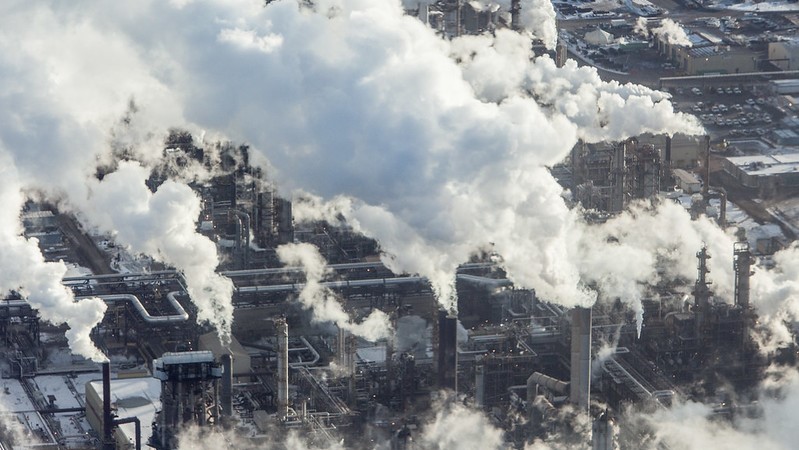Canada’s carbon tax is facing a renewed backlash amid talk of a green recovery to Covid-19 and the prospect of a snap election in the autumn.
The Conservative Party affirmed its opposition to a federal carbon tax on Monday, as members elected veteran Erin O’Toole to lead the party.
In his election platform, O’Toole promised to “fight the carbon tax with every last breath”, saying the Conservatives would defend the environment “without adding new taxes on working families and seniors on fixed incomes”.
The carbon tax has been on the frontline of Canada’s climate debate since it was introduced by prime minister Justin Trudeau’s Liberal government in 2019. It puts a price on carbon emissions from burning fossil fuels and distributes the revenues in the form of rebates for taxpayers.
Now the Conservatives are eyeing a fresh opportunity to topple the minority Liberal government and scrap the tax after Trudeau – mired in a conflict-of-interest controversy – ended the parliamentary session last week, prompting a confidence vote that could trigger another election this year.
“If we have another election in the fall, the Conservatives will make [the carbon tax] a huge election issue,” Cat Abreu, executive director at Climate Action Network Canada, told Climate Home News.
Climate news in your inbox? Sign up here
Trudeau – once the rising star of Canadian politics – is gambling on a political reset, based on the presentation next month of a spending plan to drive a green recovery to Covid-19. Conservatives could bring down the government on 23 September, when Parliament is due to reconvene to vote on the bill.
“This is our moment to change the future for the better,” Trudeau told reporters. “We can’t afford to miss it because this window of opportunity won’t be open for long.”
Newly appointed finance minister Chrystia Freeland said she would work with Trudeau to “build back better” – a global slogan for promoting inclusive climate-friendly policies to reboot the economy. “I think all Canadians understand that the restart of our economy needs to be green,” she said.
But support for Trudeau is fragile after he lost the popular vote and his majority in last year’s election. His recovery plan will have to gather the support of progressive left-wing opposition parties if he is to stay in power.
“It is more likely than not that there will be an election in the fall,” said Ross McKitrick, professor specialised in environmental economics at the University of Guelph, Ontario, adding voters were focused on the “big hole” in the economy caused by Covid-19.
German minister: EU can help Africa become the ‘greenest continent’
On 1 April – at the height of the Covid-19 pandemic and amid rising unemployment – the government went ahead with a scheduled increase of the federal carbon tax from $20 per tonne to $30/t, in line with its plan to raise it by $10/t each year until 2022.
McKitrick said the hike had hardly been noticed but future planned increases would likely become the target of any upcoming Conservative election campaign. “The battle lines are pretty much exactly the same as they were last year,” he added.
Since its implementation, the carbon tax has been met with strong headwinds at the provincial level, widening the gap between the provincial and federal governments on climate action. Ontario – where O’Toole has been an MP since 2012 – and Saskatchewan have lodged legal challenges against Ottawa’s right to impose a carbon price on provinces. Canada’s Supreme Court is expected to hear the case in September.
In his election platform, O’Toole says he wants to build climate policy on “proven market-based principles for incenting positive economic change”. His manifesto promises to transition from coal to natural gas, boost nuclear technologies exports, support oil and gas companies in developing carbon capture technologies and expanding their infrastructure in Alberta and western Canada.
“I know that as long as the world needs oil, as much of that oil as humanly possible should be Canadian oil,” he wrote.
Big oil need not apply: UK raises the bar for UN climate summit sponsorship
While he would immediately scrap the federal carbon tax, O’Toole’s programme leaves the door open for provinces that want to continue to implement regulatory measures such as carbon pricing to do so. His manifesto also suggests regulatory measures could focus on “making industry pay rather than taxing ordinary Canadians”.
Isabelle Turcotte, director of policy at the clean energy think thank Pembina Institute, told CHN more than two thirds of voters backed parties with a strong climate platform in last year’s elections, showing public appetite for action. “That is encouraging,” she said.
Abreu, of CAN, said Canada was “learning a hard lesson” about how to address climate change at the federal level, when provinces have significant control over tax policy.
The outcome of the appeal at the Supreme Court will determine the extent of the federal government’s ability to impose climate policy on the provinces.
